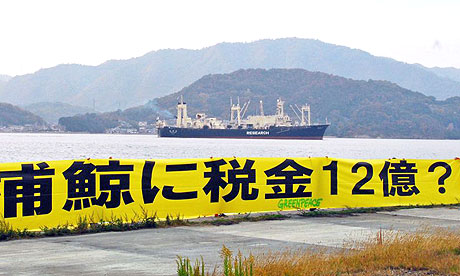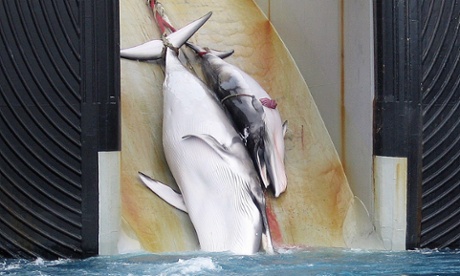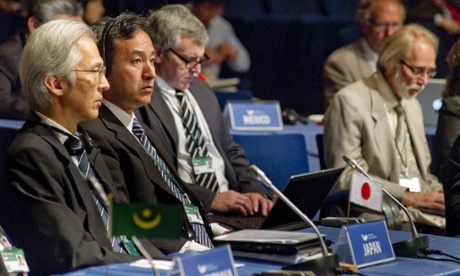In 2008, a colleague and I intercepted a box of whale meat intended as "souvenirs" for the Japanese whaling fleet's crew. Greenpeace investigations of corruption inside the whaling programme funded by Japanese taxes, prompted by whistleblowers inside the industry, revealed that the embezzlement, gifting and eventual sale of prized whale meat cuts on the black market was a common practice.
We handed the box to Japanese authorities and called for an investigation. But instead of investigating our claims, the Japanese authorities decided instead to prosecute myself and my colleague for theft and trespass. We were convicted in September 2010 and sentenced to a 12-month suspended prison sentence, a conviction that we are currently appealing. Our case has not only helped to focus public opinion onto the whaling issue inside Japan, it also brought international legal pressure over the prosecution of two activists.
Because of our case, many inside Japan are now aware of the whaling industry's kickbacks and embezzlement. The tide of public opinion in Japan has finally begun to turn against the whalers, which will eventually drive a stake through the heart of my country's whaling industry. The facts are clear: there is shrinking demand for whale meat, and roughly 6,000 tonnes of it are sitting in cold storage. For the first time, people in Japan are beginning to wonder why a fleet of Japanese ships is travelling thousands of miles to bring back unwanted meat.
Last December, one of the government bodies in charge of Japan's whaling programme, the Fisheries Agency of Japan (FAJ), said on national television that whale meat was being misappropriated; five officials who received meat "gifts" are reportedly facing disciplinary action. In 2008, we were detained for 26 days, put on trial and convicted for a similar action for which these officials are only facing "disciplinary action".
And it has come to light that two senior managers within the whaling industry, including Jun Yamashita, the number two official in the FAJ and a key negotiator for Japan at the International Whaling Commission, the body that regulates whaling, were also reprimanded for their official's actions. Combined with reports of reduced targets for whale catches in the Southern Ocean, falling sales despite vigorous promotion, and massive stockpiles of whale meat, it appears that the whaling programme in Japan is on the verge of collapse.
I am proud to have helped blow the whistle on Japan's whaling industry and even prouder that the movement inside Japan to bring this shameful hunt to an end continues to grow.
However, our case is about more than bringing an end to whaling; it is also about securing a place in Japanese society for dissent and for exposing the sometimes difficult and inconvenient truth. Yes, I did intercept a box of whale meat. But I did so in order to reveal the waste of huge sums of money that my countrymen have unknowingly given to perpetuate a hunt that brings embarrassment and shame to Japan. My interception of this meat has already changed my life for ever but I hope that the ongoing legal case will help create more space for justice and for activism in Japan.
• Junichi Sato is the executive and programme director of Greenpeace Japan. He tweets as @GPJSato










